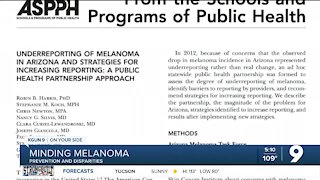Premium Only Content

ALZHEIMER PREVENTION
Alzheimer Prevention
Alzheimer’s disease is a progressive degenerative illness that results in the destruction of a person’s cognitive skills and abilities, including thinking, reasoning, learning and retention, communication, and sometimes even motor. While much of the research currently being done on Alzheimer’s disease is on finding a cure and treatment for the symptoms, considerable progress has also been made in Alzheimer prevention.
As the president and medical director of the Alzheimer’s Prevention Foundation International in Tucson, Arizona, Dharma Singh Khalsa, M.D., is one of the physicians at the forefront of Alzheimer prevention. He contends that the current research on the disease serves only to confirm the idea that Alzheimer prevention is the only practical way of dealing with it.
“We have to realize that the era of the magic bullet – drugs for the treatment of Alzheimer’s disease – is over,” asserts Dr. Khalsa. According to him, there is a need to take an integrative approach as what has been done for heart disease. “What works for the heart, works for the head,” he further adds.
Dr. Khalsa’s Alzheimer prevention principle is based on the concept that while the disease progression may be slowed down with medications and drugs, to prevent the disease from developing in the first place, certain steps ought to be taken. Foremost among these steps is to recognize and reduce the factors that lead to Alzheimer’s disease.
Alzheimer’s – a Multi-factorial Disease
Many scientists agree with Dr. Khalsa that Alzheimer’s is actually a multi-factorial disease. That is, its development is dependent upon several variables, including but not exclusive to nutrition, chronic stress, and lifestyle choices. However, Dr. Khalsa believes that out of these risk factors, the most probable cause of Alzheimer’s are chronic, unrelenting stress and free radical damage and oxidative stress, all of which occur at a certain point in our lives as we age.
Studies show that there are people who appear to be able to protect themselves against memory loss even though their brains show significant damage from Alzheimer’s disease. It has been observed that these people are usually the ones who are mentally engaged or physically active. Additionally, there are also many Alzheimer’s patients who reach 80 and beyond with their memory intact, thus, suggesting that the disease is not a normal part of aging. All these findings further suggest that those who remain mentally active in their later years have a better chance at Alzheimer prevention that those who are not.
The notion is that if people remain mentally engaged, this would result in the establishment of more synaptic connections between neurons in response to new learning. As observed in children’s brains, new synaptic connection is an integral part of learning and is a process that continues for the person’s entire biological life. Thus, as you grow older, your synaptic connection should grow denser as well.
-
 0:49
0:49
KJRH
3 years ago'Team Suicide Prevention' welcomed home
30 -
 0:49
0:49
KJRH
3 years ago'Team Suicide Prevention' welcomed home
16 -
 2:21
2:21
KGUN
3 years agoMinding Melanoma Prevention and Disparities
10 -
 2:58
2:58
KERO
3 years agoCalifornia's heat illness prevention law
251 -
 LIVE
LIVE
Randi Hipper
36 minutes agoBITCOIN PRICE FACES VOLATILITY AS ALTCOIN TAKE A HIT! LATEST MARKET UPDATE
249 watching -
 LIVE
LIVE
Wendy Bell Radio
5 hours agoDaddy's Home
13,675 watching -
 1:16:53
1:16:53
Graham Allen
2 hours agoCanada FOLDED!! Trump Wins Trade War With The 51st State! + The Department Of Education Is DONE!
12.4K25 -
 LIVE
LIVE
2 MIKES LIVE
1 hour agoTHE MIKE SCHWARTZ SHOW with DR. MICHAEL J SCHWARTZ 02-04-2025
321 watching -
 19:40
19:40
Neil McCoy-Ward
2 hours ago🚨 I’ve Never Seen Anything Like It! (I Spent The Day Reading The ‘USAID’ Payments Log - WTF!?)
2737 -
 7:53
7:53
Misha Petrov
15 hours agoThe CRINGIEST Moments From The Grammys
15K83